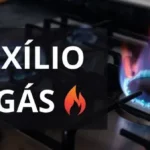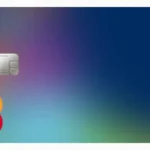SEE IF YOU'RE ENTITLED
Find out if you are entitled to any benefits and how to apply
Adverts
Learn how it works and how to apply for your social benefits, and find out more about the Winter Bono, Permanent Family Allowance, Bono by Hijo e Bono de Protección. See how to receive:
* You will remain on the same site
Did you know?

The Chilean government offers a series of social benefits to help vulnerable families secure a more dignified and stable life.
Here's some information on the main aid programmes: Winter Bono, Permanent Family Allowance, Bono by Hijo e Bono de Protección. Each of these benefits plays an essential role in improving quality of life and providing families with greater financial security.
Winter Bono
What is it?
O Winter Bono is an annual benefit that offers financial support to low-income seniors, with the aim of helping to cover high costs during the winter months, such as electricity and heating.
How does it work?
This benefit is paid once a year during the winter, offering a fixed amount to pensioners who meet the eligibility criteria. It is a way of ensuring that the elderly can cope with adverse weather conditions more comfortably.
ADVANTAGES
- Specific financial support for the winter months.
- Reduced energy and heating costs.
- Contributing to the safety and comfort of the elderly at a critical time.
Permanent Family Allowance
What is it?
O Permanent Family Allowancepopularly known as Bono Marzois an annual subsidy for low-income families to cover extra expenses at the beginning of the year, such as school supplies and other family needs.
How does it work?
The payment of Permanent Family Allowance is given in March to families participating in social programmes. This benefit aims to relieve the initial expenses of the year, providing more financial security for families.
ADVANTAGES
- Crucial financial aid for the start of the school year.
- Extra support to cover basic family expenses.
- It makes it easier for families to manage their finances during the first few months of the year.
Bono by Hijo
What is it?
O Bono by Hijo is a benefit designed for women who have children. It increases the amount of pension based on the number of children born alive or adopted, providing financial security in old age.
How does it work?
This benefit is incorporated into women's pensions and is calculated on the basis of the number of children. It is a way of guaranteeing greater economic support for women by rewarding their role in raising children.
ADVANTAGES
- Significant increase in the value of the pension.
- Promoting financial security for women during retirement.
- Encouraging long-term economic stability.
Bono de Protección
What is it?
O Bono de Protección is a programme aimed at families in vulnerable situations, offering monthly financial support for up to 24 months. In addition, the programme offers ongoing social support to help these families get out of poverty and develop their skills.
How does it work?
The benefit is paid monthly and includes personalised guidance for families, offering access to education, health and professional training programmes. The aim is to ensure that families not only overcome financial vulnerability, but also acquire the necessary tools to be self-sufficient in the long term.
ADVANTAGES
- Financial support extended for up to two years.
- Social support to ensure inclusion and development.
- Access to training, health and education services.
Don't waste time: check now if you have any of these benefits.
* You will remain on the same site
Frequently Asked Questions:
These benefits are intended for families and people in situations of vulnerability in Chile, as defined by the criteria of the government's social programmes.
The benefits vary: Winter Bono e Permanent Family Allowance are annual, while Bono de Protección can be received for up to 24 months. O Bono by Hijo is incorporated into the pension for life.
The programmes offer financial security, social support and access to essential resources such as health, education and professional training.
Each of the benefits has its own particularities. Read the full articles on each of them to find out the criteria and requirements for applying and receiving them.



